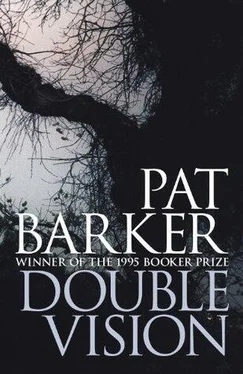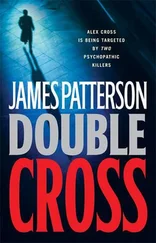Good manners required that, after her questions about his book, he should show some reciprocal interest, so he set to work to draw her out, something that from long practice he found easy to do. She was nineteen, so older than she looked. She’d had a place at Cambridge — she was supposed to be there now, but she’d got glandular fever just after the A-level results came out, and had to ask for her place to be deferred.
What A-levels did she do? Biology, Physics, Chemistry, Psychology. She’d wanted to do Art as well, but the timetable clashed.
So: four A-levels. No mention of grades. Bright and modest, or so perfectionist that no grades were good enough? There was nothing sharp or quick about her, nothing obviously clever — she seemed, if anything, rather hesitant. Young for her age. Painfully young. He kept getting this sense of pain from her — and yet she sounded cheerful enough.
‘Still,’ he said, ‘you’re only missing a year.’
‘Yeah, but I’ll be twenty by the time I get there.’
‘Oh, I shouldn’t worry. I expect they have a lot of mature students.’
‘I suppose so,’ she said, not detecting irony.
He felt slightly ashamed, though he hadn’t meant to be unkind. He pictured her there, jogging along the Backs — but why jogging? She didn’t seem particularly athletic, perhaps it was the sweatshirt and the trainers — one of the hundreds who pass through and make no impression, but years later can recall the precise sound of oars in rowlocks, hear the voices of the coaches yelling encouragement from the banks, smell wood smoke, see misty light around a street lamp and feel an obscure pain, a longing, thinking of a key that never turned properly in the lock, a door that might have opened but didn’t.
Pain again. He must be projecting all these complex layers of pain and regret on to her, she didn’t feel anything like that, how could she? She was just a young girl at a loose end because her friends had moved on and left her behind.
‘Are you over the glandular fever now?’
‘Yes. Though I still get a bit tired. I’m in bed by ten o’ clock.’
Bored rigid, he thought, refusing to dwell on the thought of Justine in bed. ‘Have you any friends still around here?’
‘One or two in Newcastle. I see them at the weekends, but round here, no. Well, one person, I suppose.’
Blue shadows had appeared in the thin skin under her eyes, and for the first time it was possible to believe that she had recently been quite seriously ill.
Boyfriend, he thought. Ex-boyfriend. Somebody who should have stayed around when she got ill and didn’t.
‘Where do you live normally?’ she asked.
‘London.’
‘Why on earth did you come here?’
‘Peace and quiet.’
‘You’ll get plenty of that.’
‘I’m in the middle of a divorce,’ he said, more honestly. ‘I need somewhere cheap to live. And I’ve got to work my arse off.’
‘You won’t be disturbed here. You’ll see graveyards with more life.’
Again that bitter, restless chafing. It made her interesting to him, and again he looked at her mouth, then raised his eyes to hers and found her watching him. Careful, he thought, replacing the mug on the kitchen table. ‘I think I’d better have a shower.’
‘I’m sorry I woke you up.’
‘No, just as well. If I’d slept any longer I mightn’t have slept tonight.’
He saw her to the door. Neither of them said anything about meeting again, because they knew they would. He closed the door as soon as she was safely through the gate. A moment later he heard the engine start and the car — borrowed from her mother? A present after A-levels? — drive away.
After she’d gone, he washed up the mugs, aware that his stocking-feet were leaving damp footprints on the tiles. God, he was disgusting. These days, without warning, he poured out this cold, clammy sweat. But it would pass. Exercise, rest, decent food, cut back on the booze — drastically — and within a few weeks He’d be back to normal. This was his main objection to the psychiatrist they’d insisted on his seeing: that the man had understood the symptoms perfectly well, but had underestimated Stephen’s powers of recovery. He couldn’t have done his job as long as he had without having the power to slough off exhaustion and the after-effects of shock. But now, at this moment, he needed, above all, to feel clean. He could tackle the rest later.
He got into the shower. The water was so hot he had to jump out again and readjust the settings. Already the small bathroom was full of steam. He got in a second time, more cautiously, and scrubbed every part of himself, washed his hair and rinsed it till it squeaked, then, deliberately, taking a deep breath, turned the shower to cold.
After the first yelp he took it in silence, letting the icy water plaster his hair flat against his skull until he was as mindless as animals seem to be in heavy rain, every sense subdued to the battering of the elements. Last, he raised his face and let the sheet of water, falling on his closed eyelids and into his open mouth, remove whatever he had left of feeling or thought.
He towelled himself dry in front of the fire, then hunted in his suitcase for clean socks and pants, before setting off, damp-haired and red-eyed but otherwise presentable, for his brother’s house.
Justine’s car had gone, he saw with a twinge of disappointment, but then remembered she’d said she was going home. He was faintly amused at himself, at how cheerful he suddenly felt. Nothing like lust to make you feel life’s still worth living, even if the particular attraction is one that you absolutely do not intend to pursue.
When Kate finally decided her state of dream-filled, dry-mouthed semi-consciousness no longer qualified as sleep, she levered herself up on one elbow and looked at the clock. Five fifteen. This was ludicrous. If she went on like this, day and night would be reversed.
She dressed quickly, pulling on her oldest work clothes, and went down to the kitchen, where she made coffee and drank it wandering round the kitchen table. Her eyelids were prickling so much from tiredness that she was tempted to go back to bed, but there was Peter to consider now. The rhythms of her working life had to adjust to this other person.
Chafing against the new dependency, she drank the first cup of coffee too hot and scalded her tongue. Her neck felt terrible, her back ached. Every morning there was this interval of pain and stiffness, while her vertebrae got reacquainted and resigned themselves to working as a team. It got better. Warmth helped. Exercise helped.
Muffled against the cold, sheathed in her own breath, she stepped across the glittering yard, crunching across iced-covered puddles and ruts to the studio. The hens were just coming out of the barn, scuffling and pecking at the mud, the cock strutting about with the sun’s rays caught in his jiggling comb, light streaming off his feathers, burning purple, oily green and gold. The farmhouse roof kindled, as she watched, frost glittered for a moment more fiercely, then began a slow retreat.
In the studio, red-faced, fingers and toes tingling, she made another pot of coffee and then walked round, staring at rolls of hessian, piles of newspaper, coils of chicken wire, buckets of sawdust, wood chippings, bags of plaster, bundles of straw, a tray of builders’ masks, mallets, pliers, chisels — all the materials and tools of her trade. She sighed, steam from the coffee rising into her eyes, and worked her arm round and round in its socket, wondering what, if anything, she could achieve before Peter arrived.
She hated having people in the studio while she worked, had never liked it, even back in art college, when it had been unavoidable. As a young woman she’d schemed and struggled to find her own place, initially a dank basement in Paddington, then, later, in Liverpool, a lock-up garage near a railway siding. Then she’d met Ben, who’d been on one of his retreats, times when he went off and photographed nothing but landscapes. Fenland, waterland, brown tarns in gorse-covered hills, snow light, water light — all with the same brooding darkness in them. They were supposed to be peaceful, these photographs, a break from the subjects he spent most of his life pursuing, but they weren’t. You always knew, looking at these empty fields, these miles of white sand with marram grass waving in the wind, that somewhere, close at hand, but outside the frame, a murder had been committed.
Читать дальше












